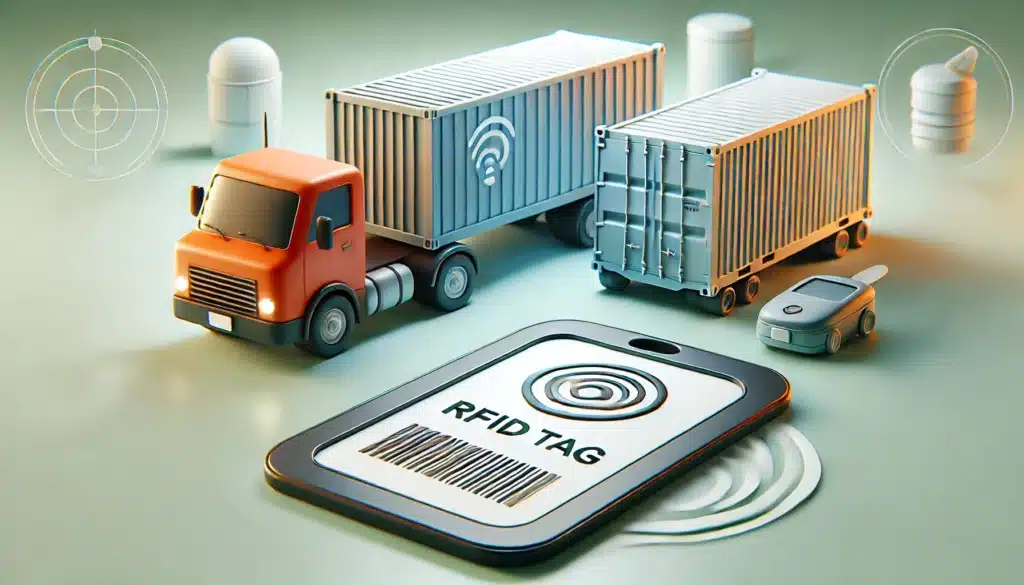The transportation and logistics industry always looks for ways to streamline processes and reduce inefficiencies. RFID tracking for transportation and logistics has emerged as a reliable technology to address these goals. However, the path to implementing RFID is not without challenges. From high costs to environmental hurdles, companies face several obstacles. This article explores these challenges and provides practical solutions to help businesses make the most of RFID technology.
1. High Initial Costs
Implementing RFID systems requires significant initial investment. Costs can include:
- RFID Tags: Prices range from $0.10 to $50 per tag, depending on type and functionality.
- RFID Readers: Prices typically range from $500 to $3000 each.
- Software Integration: Custom development and integration costs vary widely.
- Training: Employee training sessions add to the expense.
Stat: A study by ABI Research projects the global RFID market will reach $26 billion by 2027, highlighting its growing adoption.
Solution:
- Start with small-scale projects focusing on high-value assets.
- Explore vendor financing or leasing options.
- Partner with experienced providers like Lowry Solutions to design cost-efficient systems.
- Break down large implementations into phases to spread out costs over time.
2. Interference with Tags
RFID signals can face interference from:
- Metal Surfaces: Cause signal reflections or absorption.
- Liquids: Water can disrupt radio waves.
- Signal Congestion: Competing radio frequencies from nearby devices.
Examples of Impact:
- Warehouse shelving is made of metal, causing signal distortion.
- Tracking food and beverages where liquid packaging disrupts signals.
Solution:
- Use specialized tags like anti-metal or encapsulated tags.
- Test systems in real-world conditions to identify problem areas.
- Utilize frequency-tuning readers to minimize interference.
- Consider using hybrid solutions where barcodes supplement RFID in problematic areas.
3. Integration Challenges
Integrating RFID into existing systems is often complicated by:
- Legacy Software: Older systems may not support RFID.
- Custom APIs: This may require additional development.
- Data Overlap: Merging RFID with existing databases can create inconsistencies.
Solution:
- Work with RFID experts like Lowry Solutions to ensure seamless integration.
- Use middleware that bridges gaps between RFID and existing platforms.
- Run integration tests to identify and address compatibility issues early.
- Map out workflows beforehand to avoid disruptions during implementation.
4. Data Management Overload
RFID systems can generate overwhelming amounts of data, leading to:
- Storage Issues: A high volume of data requires robust infrastructure.
- Actionable Insights: Difficulty in extracting meaningful information.
- Delays: Slower analysis due to unstructured data.
Examples:
- Shipping hubs process thousands of tagged items per hour.
- Difficulty identifying which data sets are a priority for analytics.
Solution:
- Invest in centralized platforms like Lowry Solutions’ Sonaria, which organizes and analyzes data efficiently.
- Automate repetitive data processing tasks to save time.
- Use cloud-based storage for scalability and accessibility.
- Develop dashboards and reports focused on key performance indicators (KPIs).
5. Environmental Challenges
Outdoor operations expose RFID systems to:
- Harsh Weather: Extreme heat, cold, or rain can affect performance.
- Physical Damage: Tags and readers may experience wear and tear.
- Dirt and Debris: Can obscure or block signals.
Stat: Research shows rugged RFID tags can operate in temperatures ranging from -40°F to 250°F.
Real-Life Scenarios:
- RFID tags are used in refrigerated trucks.
- Construction materials are tracked outdoors under harsh conditions.
Solution:
- Use rugged tags and equipment designed for extreme conditions.
- Implement protective casings for readers in outdoor environments.
- Schedule regular maintenance and inspections.
- Consider environmental testing before full-scale deployment.
6. Security Risks
RFID systems are vulnerable to:
- Unauthorized Access: Hackers can intercept unencrypted signals.
- Data Tampering: Altering shipment details.
- Eavesdropping: Reading tags without permission.
Stat: RFID Journal estimates security breaches cost businesses millions annually in stolen or altered goods.
Solution:
- Implement encryption protocols for data security.
- Use password-protected tags and readers.
- Conduct routine security audits and software updates.
- Employ geo-fencing to monitor and control access to RFID data.
7. Lack of Skilled Personnel
Implementing RFID requires trained personnel. Challenges include:
- Knowledge Gap: Employees unfamiliar with RFID operations.
- Resistance to Change: Hesitation to adopt new technology.
Solution:
- Provide comprehensive training programs.
- Partner with Lowry Solutions, which offers ongoing support and resources.
- Create user-friendly guides for common tasks.
- Incorporate RFID training into onboarding for new employees.
8. Scaling Challenges
RFID systems must grow with business operations. Common concerns include:
- Infrastructure Limitations: Older systems may not support expansion.
- Cost of Scaling: Adding new readers and tags increases expenses.
- System Downtime: Scaling efforts may disrupt operations.
Examples of Scaling Needs:
- Adding RFID readers across multiple new distribution centers.
- Transitioning to cloud-based RFID solutions to handle growth.
Solution:
- Opt for scalable, cloud-based solutions like Sonaria.
- Plan phased upgrades to minimize disruptions.
- Regularly review system capacity to stay ahead of growth needs.
- Implement pilot programs before large-scale rollouts to ensure smooth transitions.
Benefits of Overcoming RFID Challenges
- Real-Time Visibility: Track shipments and assets with precision.
- Improved Efficiency: Reduce manual data entry and errors.
- Cost Savings: Minimize losses from theft or mismanagement.
- Customer Satisfaction: Deliver products on time, improving reliability.
Stat: According to a Zebra Technologies study, RFID boosts inventory accuracy by up to 95%.
Conclusion
RFID tracking for transportation and logistics offers undeniable advantages, from enhanced visibility to streamlined operations. Addressing challenges like costs, integration, and environmental factors can unlock its full potential. Businesses that invest in overcoming these barriers position themselves for success in an increasingly competitive industry.
Lowry Solutions provides tailored RFID solutions to address these issues effectively. Contact us today to explore how RFID tracking can transform transportation and logistics operations.




